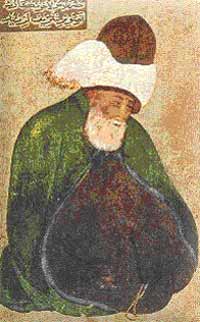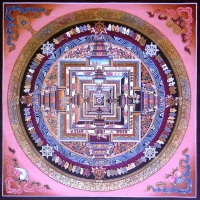Sufism
Many Muslims and non-Muslims
today believe that Sufism goes beyond Islam. Sufism or tasawwuf,
as it is called in Arabic, is the inner dimension of Islam. Falling
into sufism requires a teacher.
And Some
Words About Sufism In relation To Gnosticism
 Among
the oldest and most well known of the Sufi orders are the
Sarwariyya, Qadri Al-Muntahi, Naqshbandi, Qadiri, Chisti, Oveyssi,
Shadhili, Jerrahi, Ashrafi, Bektashi, and Nimatullahi.
Sufism as a whole is mainly focused
on direct personal experience
(experiential learning). Classical Sufi scholars have defined Sufism
as "a science whose objective is the
reparation of the heart and turning it away from all else but God."
Among
the oldest and most well known of the Sufi orders are the
Sarwariyya, Qadri Al-Muntahi, Naqshbandi, Qadiri, Chisti, Oveyssi,
Shadhili, Jerrahi, Ashrafi, Bektashi, and Nimatullahi.
Sufism as a whole is mainly focused
on direct personal experience
(experiential learning). Classical Sufi scholars have defined Sufism
as "a science whose objective is the
reparation of the heart and turning it away from all else but God."
The ground of Sufism
is Islam. Islam's holy book is
Quran, which is often badly interpreted.
The Quran, sura 47:4, states, "When
you meet the unbelievers, strike off their heads; then when you have
made wide slaughter among them, carefully tie up the remaining captives."
The above text can be also found on websites that
criticize Islam, but the Bible, too, is not without similar statements,
for example, in 1 Samuel 15, verse 2-3, it is written: 15:2
Thus saith the LORD of hosts, I remember
that which Amalek did to Israel, how he laid wait for him in the way,
when he came up from Egypt. 15:3 Now
go and smite Amalek, and utterly destroy all that they have, and spare
them not; but slay both man and woman, infant and suckling, ox and
sheep, camel and ass.
Islam is a religion
that respects Christ and some Muslims
show even greater respect for Jesus than Christians.
Muslims believe that Islam is a continuation
of the God's Revelation - that
is, a continuation of Judaism (Old Testament) and Christianity
(Old Testament and New Testament).
The word Sufi refers to "wool"
and it probably also means humbleness of people who wear a simple
cloak, which indicates the purity of ascetics.
Sufis believe that they may get
closer to God by certain techniques, which are, however, not
available to the public. Sufism is a teacher-pupil based path
and it also produced beautiful music and great musical masters like
Nusrat Fateh
Ali Khan.
This truthful religion is also mixed (in the Sunderbans
region) into one God whom both Muslims and Hindus
worship.
Some Words Sufism In relation
to Gnosticism
What Is Gnosticism?
Gnosticism was a mystical approach to God
with a comprehensive and not always single understanding of the universe.
One such understanding was a dualistic belief that fathoms the material
and the spiritual universes as two different worlds. The word "gnosis",
literally translated as "knowledge", can also be interpreted
as "enlightenment" or "salvation", and it is contiguous
with the "enlightenment" concept of Buddhism or Hinduism.
Gnosticism was an individual and personal approach to God
practiced by various superannuated religious groups including Christians.
Constantine the Great (272-337) granted the growing Christian Church
state privileges and outlawed other churches like the Arian Church
including Gnostic sects and many others. Thus, Gnosticism became officially
a heretic belief and, as a consequence,
it had no further prospects to swell in a habitat hostile to it. The
place where it had lasted for years in Europe suddenly became unfriendly
and Gnosticism hence entirely vanished from this region.
Christian Gnosticism
Early Christianity was a powerful esoteric
movement. We all know that the first Christians recognized
more gospels than the four official ones we are presently familiar
with. The Gospel of Thomas was one such a Gnostic text.
Early Gnostic Christians taught reincarnation
and they used the Rod of Asklepios (a serpent-entwined rod)
or caduceus (a staff with two entwined snakes that Hermes,
Greek god of transitions, carried) to symbolize the
immortality (source: Secrets of the Serpent, in Search
of the Sacred Past, Special Revised... by Philip Gardiner). This proves
that they did not see the serpent purely as the symbol of evil, as
this creature also symbolizes admirable qualities. Of these, I can
mention immortality and power, as the Bible says in Numbers 21:9:
"So Moses made a bronze snake and put it up on a pole. Then when
anyone was bitten by a snake and looked at the bronze snake, they
lived."
In early centuries after Christ, Christian leaders wanted to gain
political power over Rome and to establish the Christian orthodoxy
that would control the masses. And they succeeded...
Non-Christian Gnostic Groups In Europe
One of such mystery religions in Europe was Mysteries
of Mithras sometimes referred to as Roman
Mithraism. Mithra was a Zoroastrian angelic divinity
but also a Vedic god (spelled as Mitra). The Avestan language (old
Iranian) and Sanskrit are incredibly
similar. Both Hinduism and Zoroastrianism are the oldest world's religions.
The Vedic Mitra and the Iranian Mithra have undoubtedly a common origin.
Mystery of Isis, the Mistress of Magic,
was another cult of many. It had originated in ancient Egypt. Its
influence was so great that it spread to ancient Greece and also to
the Roman Empire. This cult revered Isis, the Egyptian goddess of
fertility and magic. It had a strong sexual nature similar to Tantrism
practiced by various groups in India.
Gnostic Groups Outside Europe
From among other genuine Gnostic groups I can mention the Mandaeans.
They revere Adam, Seth, Noah, and particularly John the Baptist. They
also revere other personalities like Abel. They recognize Jesus, but
they do not give him such significance as they do give to other biblical
personages. The Mandeans are one of the few true Gnostic groups that
have persevered until today with several thousand-year history in
teachings and practices. They predominantly live in the Muslim world
where they also have their origin (Iraq/Iran). However, Mandaeism
is not Islam, neither is it Christianity, nor Judaism.
Islam
Sufism is an Islamic school that inherited much of its approaches
from genuine Gnosticism the way it had been practiced in antique
Greece long time ago and thus also in Persia. Throughout history,
the mainstream religious orthodoxy has continuously outlawed "unofficial"
approaches to God. Sufism is therefore beyond Islam. It started in
Iraq after the death of the Prophet after the year 632 as a response
to spiritual stiffness and it spread to other parts of the Islamic
world including India. The term "Sufism" is derived from
the Arabic suf, which means wool.
Wool symbolizes simplicity, poverty, and also modesty. Christian monks,
too, carried garments made out of wool for the same reason.
Jewish Mysticism
The Jewish people have the Kabbalah
and also the Merkabah mysticism that
centered on visions such as those described in the Hekhalot literature.
This type of writings focused on ascents into heavenly palaces and
the Throne of God. The Kabbalah and the Merkabah mysticism are the
ancient esoteric traditions.
Tantric Hinduism
Tantric Hinduism consists of many schools the teachings of which
diverted from the orthodox Brahmanism. In ancient India, there were
some non-conformist religious groups of people who sought
God in a similar way as Sufi saints did and they chose the
way of life as wandering seekers called the Vratyas. Scholars
consider them to be the prototype of the first forms of Tantrism.
The Atharva Veda contains a hymn dedicated to the Vratyas. The Rig
Veda, too, mentions this "mystical fellowship" where the
term Vratya denotes a breakaway group.
Tantra is a secret path, as it has always had opponents from the
"official world". These opponents supported the orthodoxy
also with purpose to control people. Tantrism, although different
in its approaches to God than the above-mentioned mystical schools,
has the same seat in Hinduism as Sufism
in Islam. Gnostic Christianity was banned and Tantric Hinduism
became secret as a consequence.
Gnosticism Does Really Live
The initial tenet of Gnosticism was that an
imperfect god created the material world, but it was actually
a diverse approach with various belief systems. To see the apparel
of Gnosticism in its genuine light, I should conclude that the inner-world
practice of it was to attain "mystical experiences" - that
is, to achieve "mystical knowledge" ("gnosis")
not only on a rational but also on an empirical basis and thus to
open the mystical door of God in one's heart.
Back



 Among
the oldest and most well known of the Sufi orders are the
Sarwariyya, Qadri Al-Muntahi, Naqshbandi, Qadiri, Chisti, Oveyssi,
Shadhili, Jerrahi, Ashrafi, Bektashi, and Nimatullahi.
Sufism as a whole is mainly focused
on direct personal experience
(experiential learning). Classical Sufi scholars have defined Sufism
as "a science whose objective is the
reparation of the heart and turning it away from all else but God."
Among
the oldest and most well known of the Sufi orders are the
Sarwariyya, Qadri Al-Muntahi, Naqshbandi, Qadiri, Chisti, Oveyssi,
Shadhili, Jerrahi, Ashrafi, Bektashi, and Nimatullahi.
Sufism as a whole is mainly focused
on direct personal experience
(experiential learning). Classical Sufi scholars have defined Sufism
as "a science whose objective is the
reparation of the heart and turning it away from all else but God."
